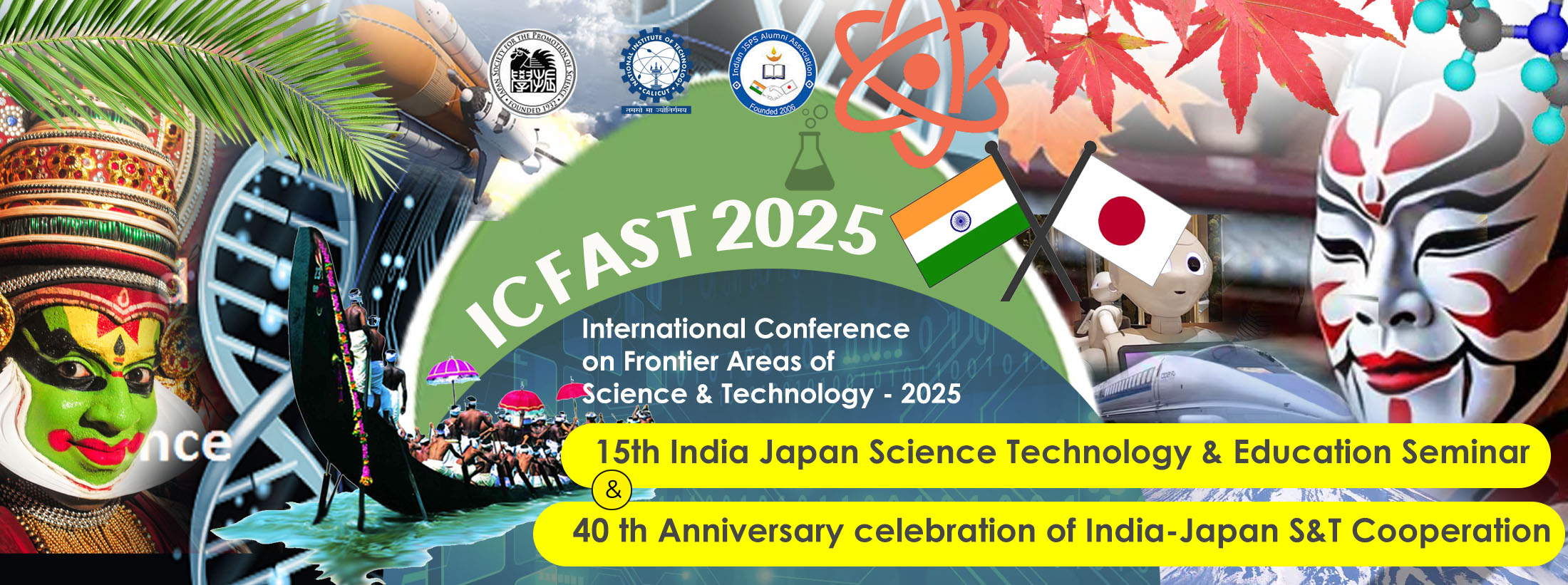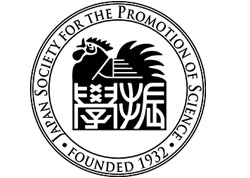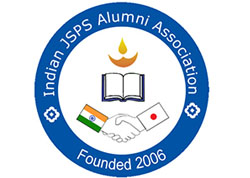

Japan Society for the Promotion of Science (JSPS)
The Japan Society for the Promotion of Science (JSPS), or Gakushin for short, is an independent administrative institution, established by way of a national law for the purpose of contributing to the advancement of science in all fields of the natural and social sciences and the humanities. JSPS plays a pivotal role in the administration of a wide spectrum of Japan's scientific and academic programs. While working within the broad framework of government policies established to promote scientific advancement, JSPS carries out its programs in a manner flexible to the needs of the participating scientists.
JSPS was founded in 1932 as a non-profit foundation through an endowment granted by Emperor Showa. JSPS became a quasi-governmental organization in 1967 under the auspices of the Ministry of Education, Science, Sports and Culture (Monbusho), and since 2001 under the Ministry of Education, Culture, Sports, Science and Technology (Monbukagakusho). Over this 70-year period, JSPS has worked continuously to develop and implement a far-reaching array of domestic and international scientific programs. On October 1, 2003, JSPS entered a new phase with its conversion to an independent administrative institution, as which it will strive to optimize the effectiveness and efficiency of its management so as to improve the quality of the services it offers to individual researchers, universities, and research institutes. JSPS's operation is supported in large part by annual subsidies from the Japanese Government.
Its main functions are:
- To foster young researchers,
- To promote international scientific cooperation,
- To award Grants-in-Aid for Scientific Research,
- To support scientific cooperation between the academic community and industry, and
- To collect and distribute information on scientific research activities.

Indian JSPS Alumni Association (IJAA)
Indian JSPS Alumni Association (IJAA) launched in 2006 with an aim to boost India-Japan S&T activities, Enriching Indian students' information about Japanese Universities and courses for inspiring them to take courses in Japan and for strengthening cultural exchanges. Starting with a humble beginning, currently, IJAA has more than 400 members well spread all over India, having a presence in almost all leading institutions in very good and influential positions.
IJAA Organized India-Japan International Science seminars in different parts of India to give awareness to Indian students regarding Japanese institutions and its activities to boost collaboration in the science field between India-Japan from 2010 onwards with the support from JSPS, Japan; MEXT, Japan and DST, India in different cities in India. 2010(New Delhi–125participants),2011(Thiruvananthapuram- About 250 participants), 2012 (Nagpur- About 300 Participants), 2013 (Bhubaneswar- About 350 Participants) 2014 (Chennai- About 300 Participants), 2015 (Varanasi – About 450 Participants: Hon. State Minister of MEXT, Mr. Motoyuko Fuji Inaugurated the seminar), 2016 (Mysore – About 650 Participants), 2017 (Goa – About 350 Participants), 2018 (Santi Niketan – About 450 Participants), 2019 (New Delhi -500 Participants). During our 10 th India-Japan S&T seminar, JSPS President Prof. Susumu Satomi attended, showing appreciation of JSPS towards IJAA’s activities. To attend our seminars, numerous well-reputed Japanese scientists visited various parts of India, and after the close interactions with the students of India, they acknowledged and appreciated the real potential of India in the field of S&T.

During these seminars, we always organized Japanese University booths and presentations from Japanese University representatives to Indian students who attended the seminars from different parts of India, which allowed to increase the awareness about the Japanese Universities among Indian Students all over India. Moreover, this helped IJAA start “Friends of Japan Clubs, all over India under IJAA members in their institutes, currently having more than 5000 active members and conducting various programs from time to time.
IJAA also organized S&T seminar in Tokyo to mark the 60 th year of diplomatic relations between Japan and India with support from JSPS, Japan, and the Embassy of India, Tokyo. Keynote talks delivered by Hon. Scientific Advisor to Prime Minister of India Dr. Chidambaram, Nobel Laureate Dr. Makoto Kobyashi, and Prof. Sumio Ijima.
Under the Bridge Fellowship program, more than 20 Indian JSPS fellows revisited various Japanese institutions, which rejuvenated their tie-ups with the Professors in the institutes resulted in winning various India-Japan S&T projects.
Since the inception of IJAA in 2006, IJAA has been actively working to enhance India-Japan S&T activities and has become very successful in the initiatives.
Website : www.indianjspsalumni.org

National Institute of Technology Calicut
National Institute of Technology Calicut (NITC) is one of the 31 institutions of national importance set up by an Act of Parliament namely the ‘National Institute of technology Act 2007’, and is fully funded by the Government of India. The mandate of the Institute is to provide higher technical education and conduct research in the various branches of Engineering, Science, Technology and Management. Originally established in 1961 as a Regional Engineering College (REC), it was transformed into a National Institute of Technology in 2002. The Institute offers bachelors, masters and doctoral degree programs in Engineering, Science, Technology and Management. With its proactive collaborations with a multitude of research organizations, academic institutions and industries, the institute has set a new style for its functioning under the NIT regime.
Website : https://nitc.ac.in//